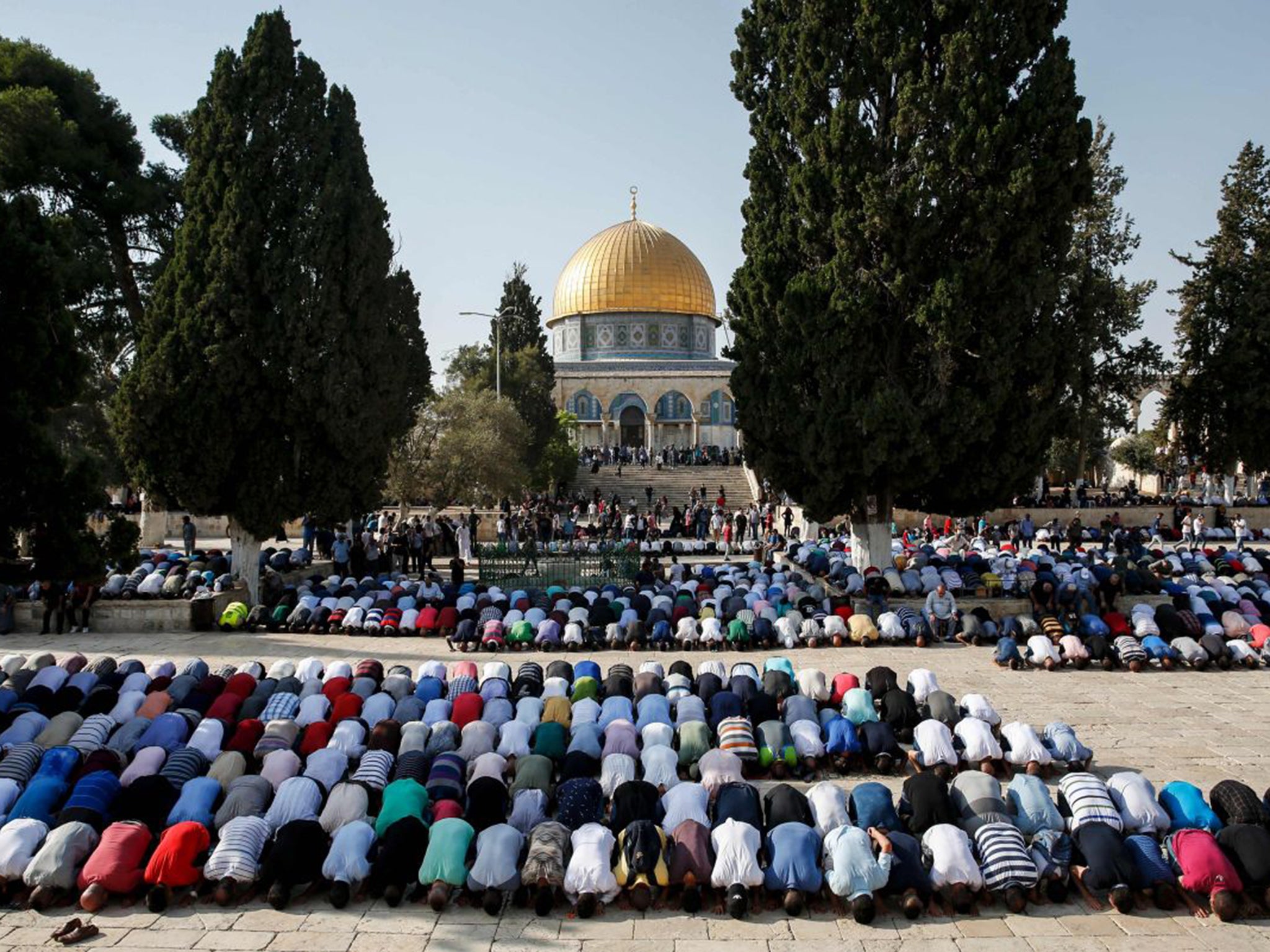Al Aqsa mosque: Palestinians clash with Israeli security forces at Jerusalem holy site
113 people injured as worshippers return to pray after a two-week standoff

Your support helps us to tell the story
From reproductive rights to climate change to Big Tech, The Independent is on the ground when the story is developing. Whether it's investigating the financials of Elon Musk's pro-Trump PAC or producing our latest documentary, 'The A Word', which shines a light on the American women fighting for reproductive rights, we know how important it is to parse out the facts from the messaging.
At such a critical moment in US history, we need reporters on the ground. Your donation allows us to keep sending journalists to speak to both sides of the story.
The Independent is trusted by Americans across the entire political spectrum. And unlike many other quality news outlets, we choose not to lock Americans out of our reporting and analysis with paywalls. We believe quality journalism should be available to everyone, paid for by those who can afford it.
Your support makes all the difference.Thousands of worshippers have returned to the al-Aqsa mosque in Jerusalem after a two-week standoff over Israeli security measures imposed on the site.
There were clashes with police as Muslims entered the holy compound – known as Temple Mount in Judaism and Haram al-Sharif in Islam – with security forces using stun grenades, tear gas and rubber bullets in an attempt to control the crowd, injuring 113 people.
Sound bombs were also used as the crowd tried to surge through both the Hutta and Lion's Gates. The violence reportedly broke out after one of the gates was closed in an attempt to control the crowd flow.
Worshippers were urged to return for afternoon prayers on Thursday after the site's religious authority Waqf declared that it was satisfied Israel had removed new security measures such as metal detectors and CCTV cameras.
The Israeli authorities had argued the new security measures were necessary after Palestinian gunmen killed two Israeli police officers near the compound on 14 July.
The decision was met with uproar by Palestinians and Muslims across the world, who viewed it as an Israeli attempt to exert more control over the politically sensitive site.

Almost two weeks of tension have followed, including worshippers praying outside al-Aqsa in protest and street clashes which have left at least four Palestinians dead. In the occupied West Bank, a Palestinian attacker killed three Israeli settlers in their home, an attack Israeli Prime Minister Benjamin Netanyahu said on Thursday warranted the death penalty.
In an effort to deescalate the growing crisis – some of the worst bloodshed in Jerusalem in recent years – Mr Netanyahu's cabinet voted to dismantle the security on Monday. The move was seen as a rare victory for Palestinians.
International observers, including the UN’s Middle East envoy Nickolay Mladenov, had urged both sides to come to a resolution before Friday prayers, which usually draw tens of thousands worshippers.
Both the Palestinian Authority and Hamas had previously called for a “day of rage” if the status quo at the site had not been reinstated by Friday.
It is not clear if the Waqf's approval – which was supported by the Palestinian political factions – will be enough to diffuse the tensions. The Israeli security forces remain on high alert.
Access to the Temple Mount, or Haram al-Sharif, has always been a hugely contentious issue. While it is located in East Jerusalem, which was annexed by Israel in 1967, the Muslim-administered site is operated by neighbouring Jordan in order to avoid conflict.
Join our commenting forum
Join thought-provoking conversations, follow other Independent readers and see their replies
1Comments